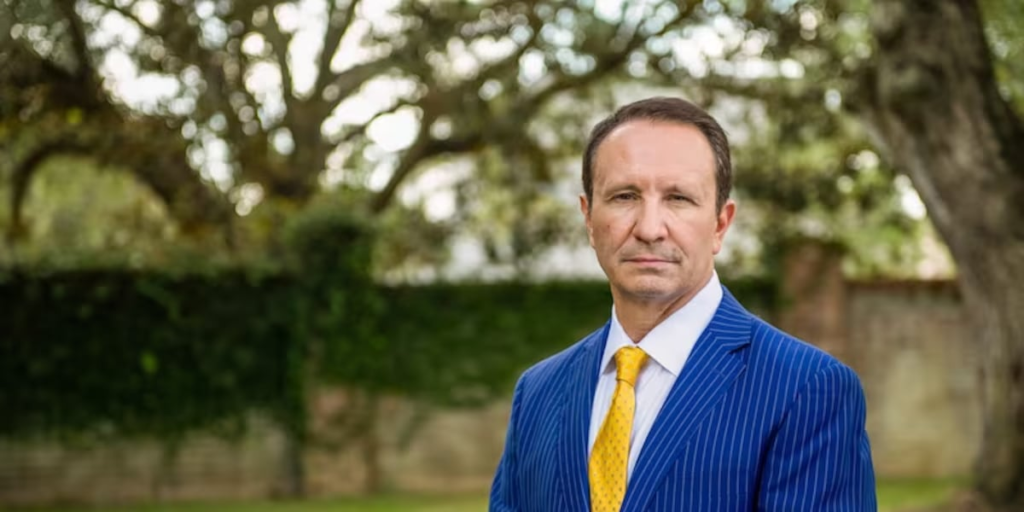NEW ORLEANS (WVUE) – In expressing support for a controversial bill that critics say would water down Louisiana's public records laws, Gov. Jeff Landry and the bill's authors announced that sources He referred to journalists who have not published. But public records law and transparency experts say the media cannot be equated with tax-funded government.
Senate Bill 482, by Sen. Heather Cloud, a Republican from Turkey Creek, would exempt from state public records laws government records that reflect advisory opinions, recommendations, and deliberations that are part of the process that leads to government decisions and policies. The content is as follows.
During a Senate committee hearing this week, the bill faced pushback from some senators, good government groups and journalists.
Cloud mentioned the media when answering a question from his colleague, Sen. Sam Jenkins, D-Shreveport.
“The same way the media does investigative reporting and has sources and sources and spends time investigating the validity of that information and that information and that source, like Sen. Jenkins. We do not require the media to publish their sources and all data so that they publish the final product otherwise it is not true and is misleading. “This could lead to confusion,” Cloud said.
Related article
Norco state senator says bill that would take away access to public records will be changed or repealed
Citizen watchdog group decries the chilling effect of potential Louisiana public records law changes
Bill to take away public access to government records advances in Louisiana statehouse
Bill targeting Louisiana's public records law draws criticism
In a statement about the proposed new law, Landry said: “Public records laws are intended to bring transparency to taxpayers when the government spends their precious tax dollars. Over time, these laws have been weaponized to suppress deliberative speech. No journalist allows readers access to intimate notes and discussions with interviewees or to email exchanges with editors and colleagues.
Dr. William Murry, assistant professor of media history and media law at the University of Baton Rouge, responded to Landry and Cloud's comparison of journalists and government.
“That means citizens and government officials have a different power relationship than journalists and their audiences. That means public servants work for everyone on the other side of the aisle,” Mari said. Told.
Additionally, Mali said, “Traditionally, historically, both in Louisiana statute and common law, there's been a very clear distinction between private enterprise and access to public records. So basically… , there are a lot of protections for private records, for private companies with their own unique circumstances, and for private companies with less oversight, so the burden on the government is even greater. It seems to me that having access to it, at least on paper, goes against the whole of Louisiana's often very good history.'' Melia, a Sunshine Law Fellow at Tulane University's First Amendment Law Clinic.・Lawyer Cerrato also criticized Landry for comparing journalists' materials with government documents.
“This is a false comparison, and journalists are not elected. This bill would keep government records secret, and since we pay the government with our taxes, we won't.” have the right to know who they are talking to, who they are interviewing, what they are considering, and what information they have. “We don't have the same rights for journalists,” she said.
He also said that not only members of the media but also the general public are requesting public documents.
“That's definitely a misnomer,” Cerrato said. “The reality is that most of the people we know who use public records are ordinary citizens, and they know how the government works, where their tax dollars go, and I'm just trying to understand what new urban planning laws they're trying to implement,” she said.
Mali and others argue that in a democracy, citizens should expect unrestricted access to public records. “If you don't have access to government records, that's a big departure from American tradition since the mid-20th century. In fact, the only places you don't have access to public records are usually authoritarian regimes,” Mali said. Told. “It's very important to be able to see what's going on in our government. They're useful to us, not the other way around. And we want journalists and other civilians to be able to see what's going on in our government, just like a public servant is a citizen to me.” I don't expect them to treat me like other citizens.”
Cerrato said that when Landry was Louisiana's attorney general, he had to hire two attorneys working full time to respond to “sometimes unreasonable requests from people who are not affiliated with the state.” , criticizing Mr. Landry.
“I highly disagree with his comment that public records requests are pointless, but who decides whether a public records request is pointless? Someone's daily life If it has an impact, it's not meaningless,” Cerrato said.
FOX 8 has requested an interview with Governor Landry, but his office has not so far indicated whether the request will be granted.
Was there a spelling or grammatical error in your story? click here to report it. Please also include a heading.
Subscribe to Fox 8 YouTube channel.
Copyright 2024 WVUE. All rights reserved.


